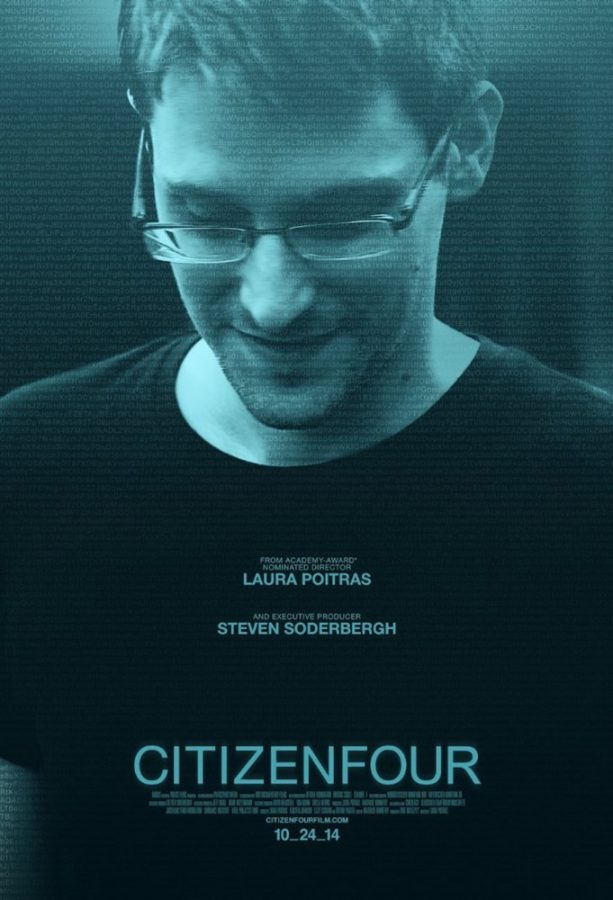In the summer of 2013, Edward Snowden sent shock waves around the world when he became a whistle-blower on the National Security Agency. The documentary “Citizenfour” works just as effectively as a globe-spanning thriller. It’s just unfortunate that such sensational material is actually real.
Leading up to the fateful encounter in the Mira Hong Kong, the hotel that now joins Watergate in the annals of exposing unethical American political espionage, filmmaker Laura Poitras narrates how she came into contact with the person who would only be identified as “Citizenfour.”
The exposition plays out like something from a Hollywood spy thriller. Poitras is contacted by an unknown source, who drops tantalizing details that they are a senior member in the intelligence community and that Poitras needs to expect, from this point forward, that all of her communications will be monitored. This unknown person states unequivocally they can reveal secrets about the government and prove it has lied about its information-gathering policies and techniques.
Their meeting in-person must be as clandestine as their encrypted communications. He, the unknown source, would later be identified by a Rubik’s cube, and Poitras would ask if he knew when the restaurant would open. The source would answer the question, but then comment on how the food is bad. With these code words confirmed, they would proceed to the hotel room.
Though the audience knows who the source will be, the anticipation still reaches a fever pitch because the audience had no idea, until now, who exactly the person is behind the name Edward Snowden. Since this tell-all meeting, there have been innumerable articles written about him, yet the only firsthand account of his existence is a brief video clip of a bespectacled 20-something in a gray shirt with a mirror in the background.
Glenn Greenwald and Ewen MacAskill, journalists for The Guardian, join Poitras in the hotel room, and, after some ground rules are set up, the secrets begin to pour out.
The details are juicy and frightening. Government agencies collecting mass telephone records; secret installations that house computers collecting as much metadata on Internet and phone communications as possible; blatant disregard for legal precedent and warrants. The revelations are nothing new since their disclosure more than a year ago, but it is more effective hearing it come directly from someone who’s seen how the sausage is made — from Snowden.
Throughout, there are glimpses into Snowden’s severity as the interview goes on. He pays a fair amount of attention to his hair, towel-drying and running his fingers through it in a hasty styling attempt.
His mannerisms inform both the journalists and the viewer that there are serious consequences to what is transpiring. He disconnects the hotel room phone, and even puts a blanket over his head and his laptop as he inputs a password. When a fire alarm goes off without warning, Snowden’s anxieties kick in.
“Citizenfour” has an immediacy and spontaneity of real life that is hardly ever simulated in film. More precisely, Poitras presents this peerlessly riveting story in that way.
The fallout that extends from these reports is immediate and wide-reaching. The story appears in every media outlet with every notable talking head chiming in. Snowden’s face is blown up on massive video screens in metropolitan Hong Kong, just a short distance from where he’s staying. It’s a slew of reactions and images.
In a piece of bizarre, surreal vérité, Snowden silently checks his laptop as the stories break, and the entire world begins to know his name.
On a TV in the background, the music video to Ariana Grande’s exultant pop-anthem “Break Free” plays.
Though Poitras was understandably close to all of the action, the documentary is still very one-sided. There are not many, if any, sequences that call Snowden’s actions into question.
In the parking lot after the screening, I overheard a couple reacting to the film. The woman commented how she was going to smash her laptop. Though this is an extreme reaction, Snowden and Poitras want to encourage people to stand up and fight for their personal liberties.
The cell phone in my pocket certainly felt a little heavier.
Grade: A-
_______________
Follow Alex Guyton on Twitter.









